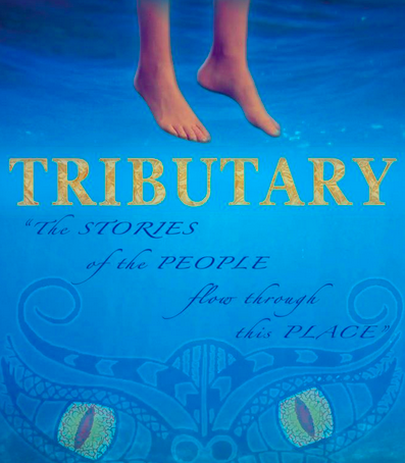Matt Loveranes
This is a question I often ask myself. As a son of immigrant parents, I’ve always had a niggling struggle with my place as a New Zealander. Growing up with a pastiche of different cultures, oftentimes I have insecurities of my experiences not being entwined enough with local culture, not being quintessentially “New Zealand” enough. But that is my personal experience, and in seeing Tributary, I wondered how The Boat People would respond to this age old question.
The real stars here are the Boat People themselves. Not only are they adept individually but there is a kinship and community in this ensemble of young New Zealanders that is special to behold. The characters they create are all recognizable and relatable and the passion and commitment behind each one is endlessly admirable. Their varied skills are in full display as they sing, dance, orate and act to articulate their personal versions of the New Zealand story. Highlights include a thoroughly committed Thomas Hart, who opens the show in an energetic key and sets a confident tone for the rest of the show as well as Laulauga Toia who perfectly captures the essence of being alien in your own home which resonated with me most personally.
Another boon to the production is the technical elements, which are first-rate. Kasey Collins’ set is simple and clean yet evocative and distinct. Christopher Watts’ lighting design sets just the right, simpering mood and the big moon light is a gorgeous, imposing sight to behold. Sasha Tilly’s costume design is exceptionally curated. The actors look stylish in wardrobe with a uniformly earthbound colour-palette. That all these design elements coalesce to produce a consistent and visually pleasing aesthetic is a testament to thought and inspiration that came into the crafting of this production.
The Boat People should be proud of their achievement. These stories may be nothing new and we’ve all heard them in some variation or another but under the astute direction of Nicola Hyland, the ensemble successfully shows us the necessity to remember these stories, to re-evaluate our beliefs and to question what it really means to be a New Zealander. They demand that these stories be told; that these are stories always worth telling. Because they are our stories and those are the stories that matter.
As I left Tributary, I felt less insecure of my niggling struggle. I felt less alone, a wave of joy reverberating from what I had just experienced.






